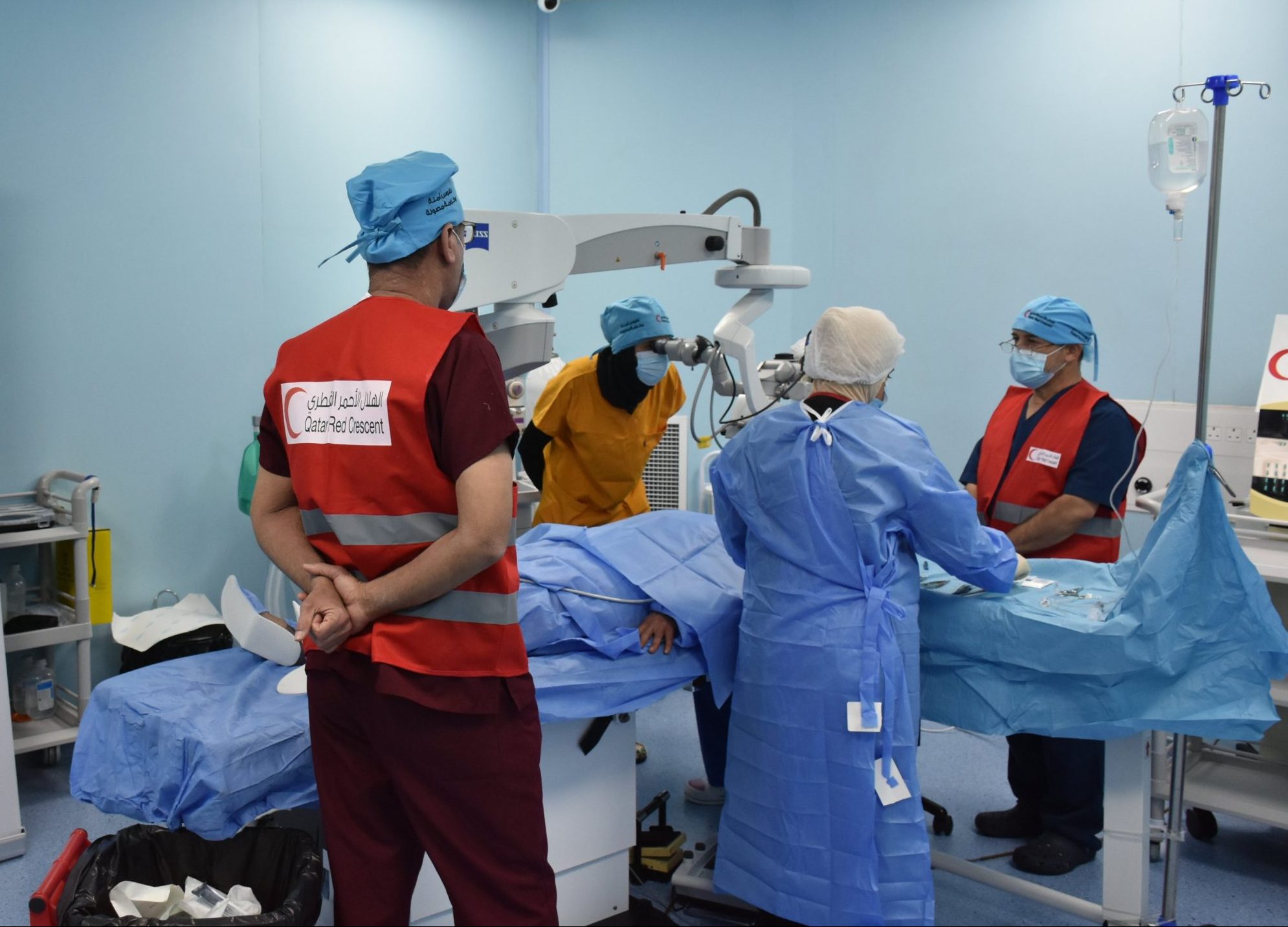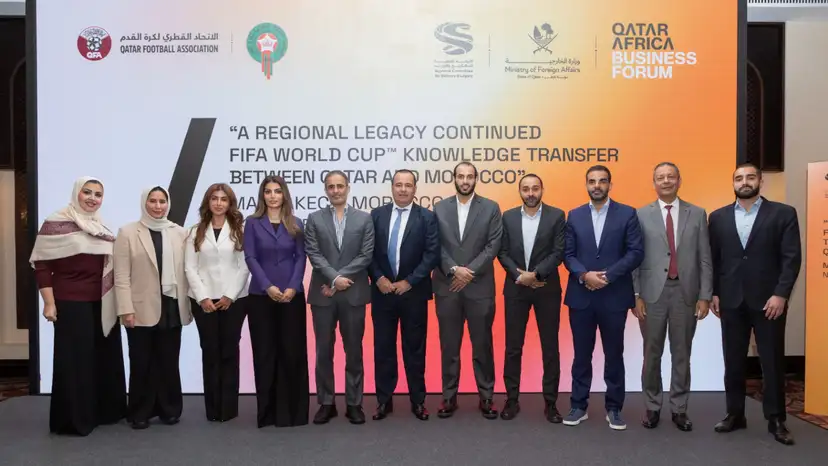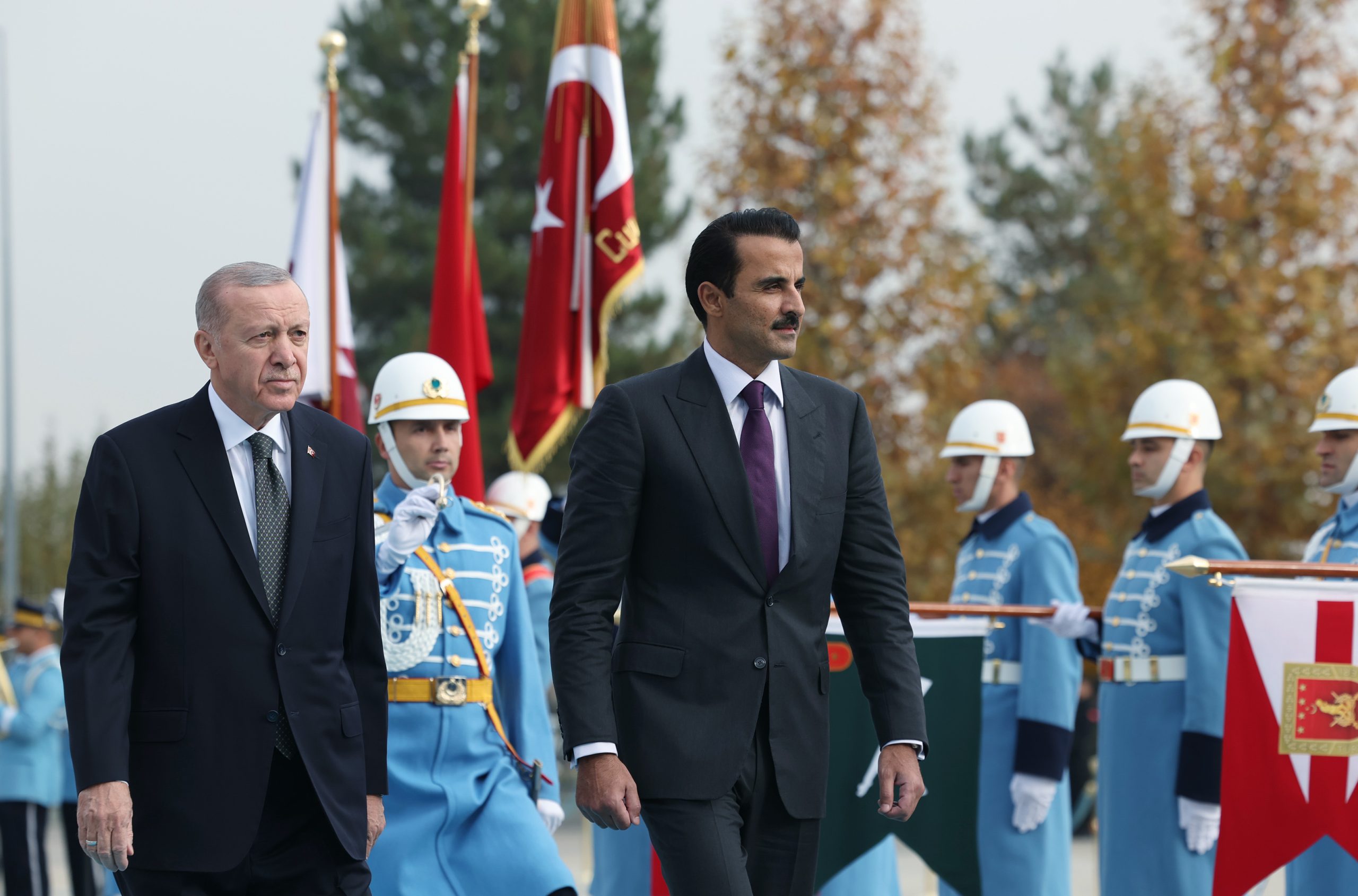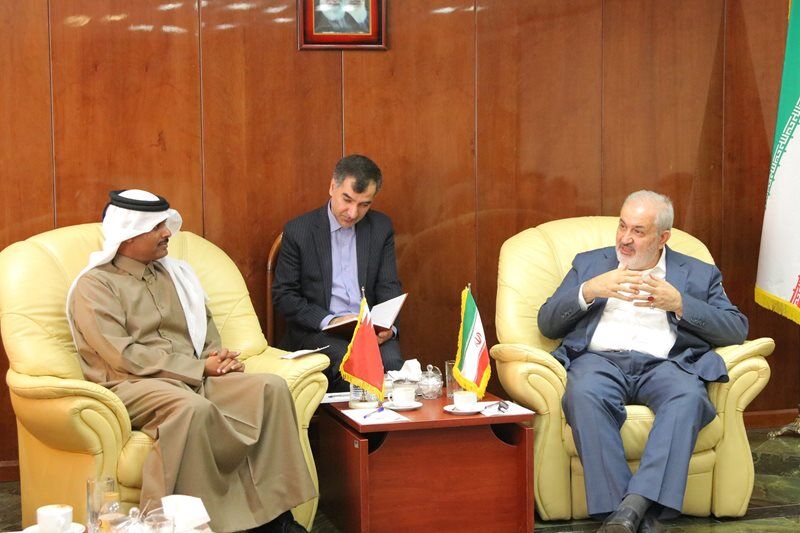The Qatar Red Crescent Society (QRCS) has concluded its medical convoy for eye disease treatment in Iraqi refugee camps.
Around 1,300 people in Iraq received medical care from the Qatar Red Crescent Society’s eye disease treatment medical convoy, the organisation said.
The medical convoy was launched with a total budget of $196,632 and managed to provide healthcare free of charge to those in need across five camps in Iraq.
Carried out in collaboration with the Iraqi Red Crescent Society and the Erbil Health Department, the project also provided diagnosis, referral, and surgical interventions for eye diseases for displaced Iraqis and Syrian refugees, a QRCS press release said.
The organisation also rolled out use for the advanced medical device – the optical coherence tomography (OCT) machine – which had never been used in Erbil.
The device allowed accurate examination and diagnosis of various eye diseases, including retinal examinations, significantly improving the quality of healthcare provided to the displaced population.
During the project, doctors performed 137 surgeries and provided necessary medicines and treatments to patients requiring surgical intervention. They provided healthcare for common eye diseases such as cataracts, glaucoma, and eye pressure, prevalent issues among the displaced population.
Breaking point
Iraq is currently home to over 260,000 Syrian refugees, the majority of which reside in the northern Kurdistan region along with some one million Iraqis who fled their homes elsewhere to escape the so-called Islamic State militant group at the height of their deadly campaign in 2014.
According to estimates by UNHCR, a staggering 4.1 million Iraqis require urgent humanitarian assistance and protection, with 2.4 million in critical need. Among the nearly 250,000 Syrian refugees living in displacement within Iraq, approximately 20% depend on UNHCR for crucial healthcare services and basic necessities.
Furthermore, millions of families residing in extended displacement situations have reached their limits, having depleted their financial resources over time. Now, many of the families face significant difficulties in accessing essential services, some of which require immediate life-saving aid.
The UN Refugee Agency has deployed its teams on the ground in Iraq and the neighbouring regions, where they are actively engaged in safeguarding the rights and interests of refugees and internally-displaced people (IDPs).







